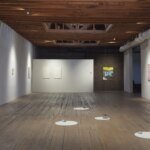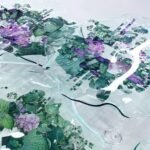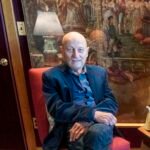
Two artists, Amna Al-Salmi and Ismail Abu Hatab, were among at least 30 people killed in an Israeli air strike on the crowded seaside Al-Baqa cafe on Monday afternoon.
The cafe, which offered internet and charging facilities, had become a hotspot for journalists, artists, and activists. It was one of the sites targeted by Israeli forces that day, in attacks that reportedly killed more than 70 people, including Palestinians seeking humanitarian aid. Israel’s latest wave of assaults has seen new displacement orders issued to tens of thousands of residents; around 80% of Gaza’s population is reportedly now under such directives.
Al-Salmi, best known as Frans, was a visual artist, and Abu Hatab was a filmmaker and photojournalist. The close friends had been meeting colleagues and friends at the café when they were killed.
Rafiq Al-Salmi, Frans’s younger brother who is also an artist, tells The Art Newspaper from Belgium that he had been in touch with his sister around an hour before she was killed. In their final exchanges shared with The Art Newspaper, Frans checked on her brother’s wellbeing before describing her own struggles. “Life can be cruel, it puts us in situations that make us realise just how vulnerable we are when we’re alone, and how much strength we draw from the people we love,” she wrote, before expressing how much she missed fighting over paint colours with him.
One of ten siblings, 36-year-old Frans graduated with distinction in fine arts photography from Gaza’s Al Aqsa University, and spent her career working across painting, murals, sculpture and digital art. A regular of Gaza’s art scene, she took part in the art programme at Eltiqa gallery. In a 2016 gallery brochure, Frans shared her thoughts on Eltiqa’s programme: “It may not have been my first experience, but it was the one I understood most deeply. I am now trying to realise my artistic identity within the circle of contemporary arts.”
Frans remained artistically active despite numerous hardships, including the death of her father in December 2023 due to a lack of medical care, many displacements and her brother’s severe spinal injury caused by shrapnel. She worked with several charitable and cultural organisations, including the Tamer Institute, a non-profit Palestinian educational organisation, where she led workshops and events for children to help them cope with the surrounding conflict. Al-Salmi says his sister hoped to leave Gaza and pursue her studies.
“I want the world to know that she loved everything beautiful—all of life—and that she wanted to live to create all that is beautiful,” Al-Salmi says, adding, “I want the world to know that my sister loved art and aspired to become a shining name in it.”
Frans’s final Instagram post, shared ten days before her death, depicts three dead women, with the colour red splashed across their bodies. Her caption reads, “The blood of the martyr. Blood scented with cardamom.” After her death, friends and others online shared an image of her bloodied body alongside the artwork, drawing chilling parallels.
“I love her very much and I hope that time can go back so that I can talk to her, because I cannot live without her checking on me,” Al-Salmi says.
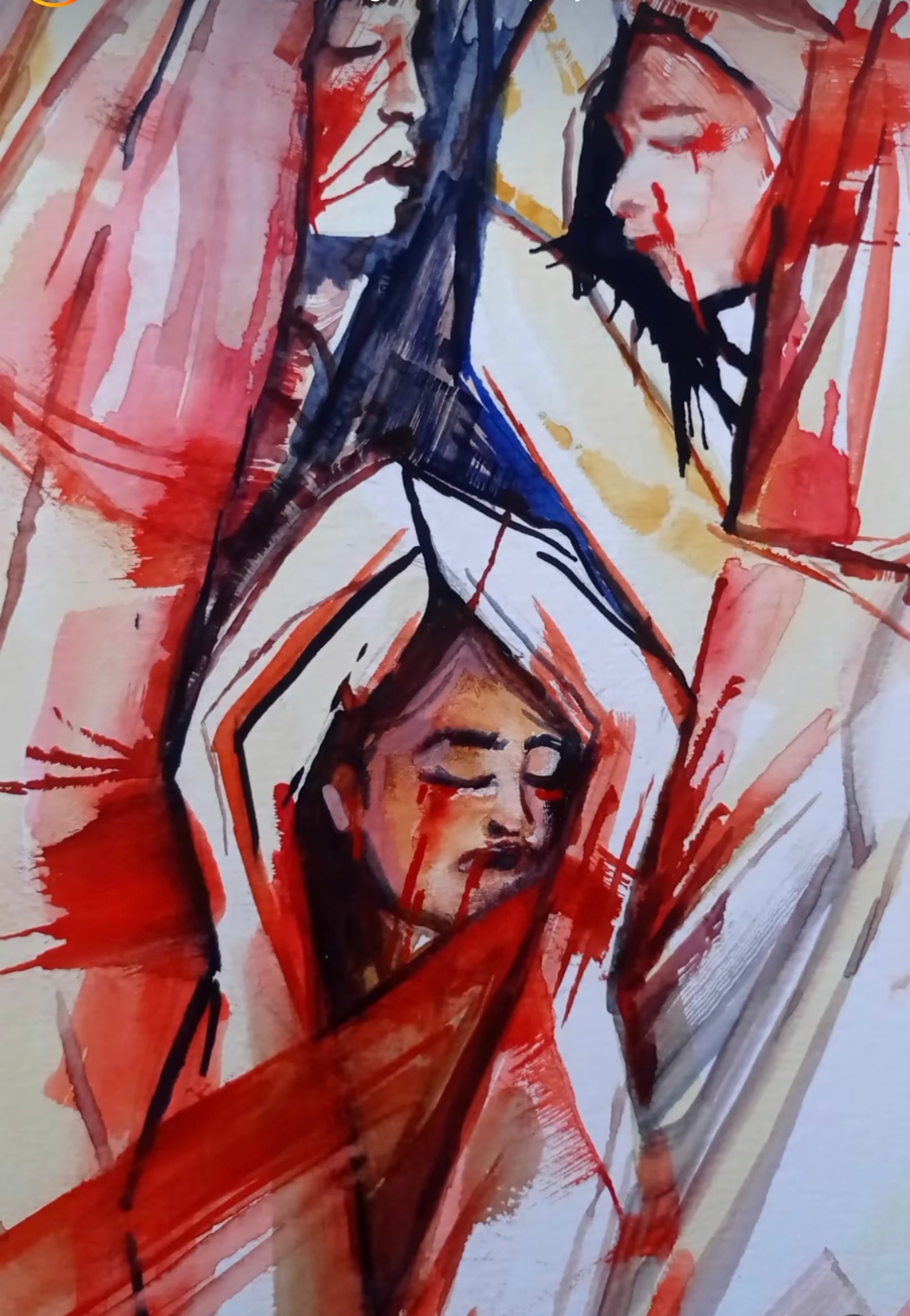
Amna Al-Salmi’s last Instagram post Image: francalsalmi/Instagram
Abu Hatab, a 2014 graduate of Gaza’s University College of Applied Sciences with a bachelor of arts, also continued to work throughout the war, despite being seriously injured in an Israeli attack while he was filming a documentary about Palestinian struggles.
“He was always the hopeful face in the middle of every tragic scene—a strong, kind-hearted, and hardworking photojournalist and director who just wanted to show the world the true picture of Gaza,” a former colleague, who asked to be identified only as Mohammad, tells The Art Newspaper.
Mohammad says photography was Abu Hatab’s way of showing the world how “his people” loved life and insisted on living with dignity and hope, even under siege. “He pursued it with passion and professionalism, never letting the burdens of war stop him from his work,” he adds.
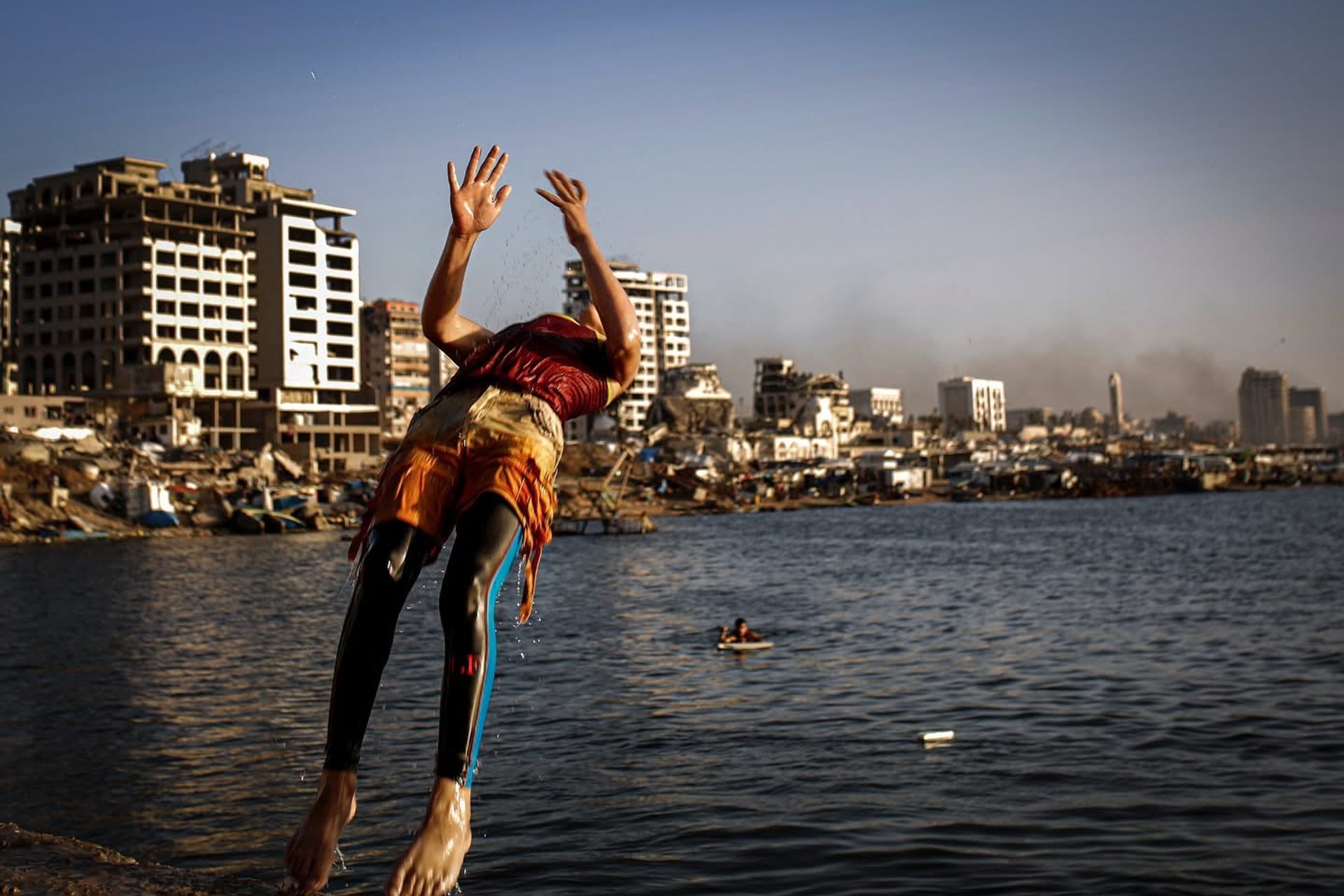
Ismail Abu Hatab documented life in Gaza during the war Image: Ismail Abu Hatab/Instagram
Despite his injuries and inadequate medical treatment, which left the 32-year-old with limited mobility for a year, Abu Hatab continued filming and exhibiting his photographs. In May, his work featured in What is Home at Chicago’s Haymarket House, and in Gaza: Against the Erasure at the Pain Sugar Gallery in Riverside, California. A series of his photographs also featured in the fourth edition of the Barcelona International Photography Festival on Human Rights and Global Justice, held from 10 December 2024 to 10 January 2025.
Abu Hatab also founded ByPa, a platform for Palestinian creators to tell their stories, aiming to amplify their voices in a world where he felt Palestinians lacked control over their narratives. In June, ByPa launched an online store, ByPaArt, on Etsy selling works by Palestinian creatives. As news of his death spread, social media was flooded with tributes, memories and condolences.


